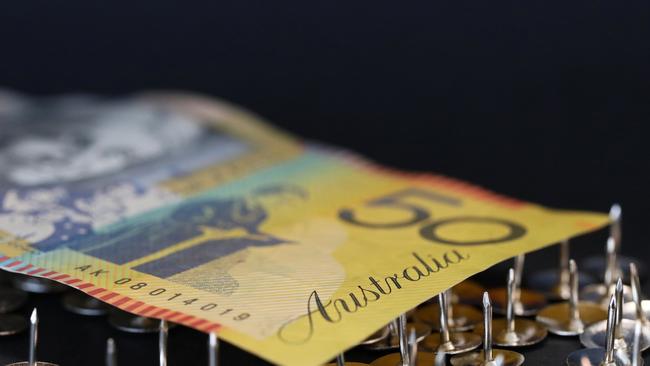How to beat the recession’s credit squeeze on households
Recession-related debt pressures are set to squeeze household budgets as Australians’ borrowing remains near record highs. But there are easy ways to ensure your finances are in check
Saver HQ
Don't miss out on the headlines from Saver HQ. Followed categories will be added to My News.
Recession-related debt pressures are set to squeeze household finances as Australians’ borrowing remains near record highs.
New Reserve Bank figures show bank loans rose 4.4 per cent in the year to April 30 to $2.76 trillion, and have continued to climb during the coronavirus pandemic. Non-housing credit has dipped since January but is still 7.3 per cent higher than a year ago.
Separate data from credit agency Equifax shows consumers are heading into arrears on their loans at a higher rate, more for motor vehicle debt and personal loans than for credit cards and mortgages.
Equifax executive general manager Moses Samaha said it was important for people who were struggling to get in touch with their lender quickly.
Hundreds of thousands of Australians have deferred mortgage repayments through lenders’ COVID-19 schemes, and Mr Samaha said some people might not realise assistance was also offered for other credit products or they were “too proud to ask for help”.
“Equifax has seen the first signs that some consumers were struggling to meet their April monthly repayments with an increase in the number of consumers who were more than a month overdue,” he said.

The “true impact” of consumer debt struggles might not be clear until later this year once deferrals and government stimulus ended, Mr Samaha said.
He said demand for credit cards and personal loans remained low, but motor vehicle finance was back to pre-COVID levels.
“We expect this is due to a number of factors, including government stimulus and potentially a demand for a vehicle to avoid public transport,” he said.
Mortgage demand is higher year-on-year as borrowers rush to refinance amid ultra-low interest rates.
Australians have rushed into buy now, pay later products such as Zip Pay and Afterpay, which has 2.6 million customers and booked $4.6 billion of sales in Australia and New Zealand in the first nine months of 2019-20.
Creditcard.com.au founder Roland Bleyer described these popular schemes as hidden debt that could penalise irresponsible consumers with late payment fees and affect their credit score.
It is difficult to forecast the recession’s effect on consumer debt because we haven’t had one for 29 years.
Mr Bleyer said Australians were generally wary borrowers, and tougher lending approval processes had made it harder to get debt.
“But some people are still spending well above their means and requesting higher credit limits,” he said.
“They just keep consuming and are not looking at trying to do a budget. They never got the message that credit card debt is toxic and won’t just magically go away.”
Mr Bleyer said people with debt problems should first look inward: “No one is going to solve your debt for you.
“Pay off the highest interest debt first and look to consolidate,” he said.
STOP THE SQUEEZE
• Keep track of your loans and get a free copy of your credit report.
• If experiencing hardship, contact your lenders immediately.
• You can often renegotiate repayment terms to avoid a black mark going on your credit history.
• Accept there is no easy fix, and stop using credit cards if they are causing you problems.
• Prioritise what debt to pay off first – starting with the highest interest rate.
• Free financial counselling is available by calling 1800 007 007.
Originally published as How to beat the recession’s credit squeeze on households
